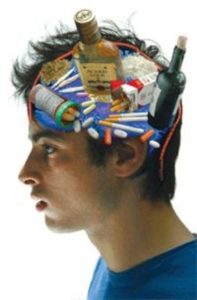What is an Intervention for drug addiction?
Staging an intervention
How can you help a loved one confront her denial and face up to problem drinking or drug addiction? An intervention is one way that you can help your loved one make a decision to seek help in a treatment centre.
What is an intervention?
Interventions are particularly popular in America and are not yet formally practiced much in South Africa or the United Kingdom. It is a meeting of a group of people who are concerned about a loved ones drinking or drugging. The aim is to persuade the addict or alcoholic that s/he has a problem that needs professional help, possibly in a treatment center. The family and friends should have the opportunity to make their needs known and not to voice their anger and frustration with the addictive behaviour. By allowing the family to express their hurt an intervention can be derailed, and the intended objective of getting the patient some professional treatment not effected. The time for increasing the drug addicted or alcoholic patients awareness into the damages their addiction has caused is during the rehabilitation phase after detox and not when we’re trying to get them into treatment. This would be counter productive to all involved. Drug addiction interventions are widely regarded as being an effective means of persuading somebody to enter into a drug rehabilitation (rehab) clinic. Even if the intervention fails and the addict does not decide to get treatment then at least the family can feel that they have tried their best.
When should you stage an intervention?
Drug addiction interventions can be useful if there are no other pressures (such as work or legal problems) to enter addiction treatment. If you have spoken to the alcoholic and s/he has failed to enter an alcohol rehabilitation center then you could consider an intervention. Make sure you inculde professional help and that you properly prepared the significant stake holders in gathering enough information to be able to challenge the addicts denial. Remember that the addict is often the last to admit that there is a problem and you will need collateral information to pressure them into a treatment centre.
Who should participate in an intervention?
A drug addiction intervention group should be large enough to show the addict that there is concern but not so large that communication becomes difficult. A group sized from 3-5 members is ideal. The group should include people that the addict is close to and respects. Avoid including people that automatically trigger off anger in the addict and avoid including children who are too young to understand what is happening. You should be careful about choosing who’s included int eh intervention group. It’s critical to avoid including people who have a pattern of excusing the addicts behaviour.
There are growing numbers of professional addiction counsellors in the United Kingdom and South Africa who are available to help families perform interventions for their loved ones addicted to alcohol and other drugs. Please contact us today to arrange an intervention for drug addiction or alcoholism.
What happens in the intervention?
We can break the intervention down into 9 steps:
1) Take a couple of people and discuss having the intervention. Check if anybody has spoken to the addict about being admitted into a drug rehab clinic before and how the addict might have responded to that.
2) Find the people that you think should attend. Follow the guidelines listed above.
3) Look for a professional who might be able to help with the intervention. Try finding a psychologist, social worker, or addictions counsellor who has had intervention experience. You could consider contacting your local addiction treatment center for help in finding such a person.
4) Meet with everybody in the group and make preparations.
Each person who will attend the intervention should draw up a list of incidences where he/she was affected by the alcoholic drinking or addict drugging. Include specific details such as: what happened and why it was wrong, where did it happen, when did it happen, how much had the alcoholic been drinking, how did you feel about the behaviour, what other consequences were there? Try to use recent examples rather than events that can be dismissed as being “old news”. Avoid including anything that isn’t common knowledge.
5) Do some research on treatment options and find something that is suitable and makes sense. Find out about the cost of addiction treatment and whether medical insurance will cover the cost. Ask about the length of the alcohol treatment program and discuss whether the alcoholic can afford this amount of time away from work. Visit a few different drug rehabilitation (rehab) clinics and compare the staff and accommodation. We Do Recover is able to assist you with this step and we invite you to contact us if you are looking for advice on drug rehab in South Africa.
 6) Hold a practice session as a trial run.This will help the group to feel more confident and also give you a chance to edit the list of examples everybody will have prepared. If somebody starts to show ambivalence about the addict being admitted into a residential treatment program then you should ask him/her not to attend the real event. Members of the group should decide on what consequences they will apply if the addict continues to use drugs. These consequences could include actions such as: divorce, kicking out of the house, loss of financial support, or withdrawing access to children. They should be realistic actions that the person will follow through on and not just idle threats.
6) Hold a practice session as a trial run.This will help the group to feel more confident and also give you a chance to edit the list of examples everybody will have prepared. If somebody starts to show ambivalence about the addict being admitted into a residential treatment program then you should ask him/her not to attend the real event. Members of the group should decide on what consequences they will apply if the addict continues to use drugs. These consequences could include actions such as: divorce, kicking out of the house, loss of financial support, or withdrawing access to children. They should be realistic actions that the person will follow through on and not just idle threats.
7) Organize the logistics: reserve the bed at the residential treatment center, pack the addicts bags, and arrange all the other details that are required to book the addict into rehab. The idea is that if the intervention goes smoothly then the addict is taken directly to rehab and not given an opportunity to change her mind.
8) Arrange the meeting. Of course everybody in the intervention group needs to be available but getting the addict to arrive can be challenging. Avoid meeting in the addicts home and rather choose a neutral setting such as a doctors office that is easily accessible to the problem drinker. Do everything you can to persuade the addict to arrive at the intervention. If the addict absolutely refuses to attend then you can set up the meeting at home as a last resort. If the addict tries to walk out of the intervention follow her to wherever she goes in the house. If she tries to leave the house block the doors with a sofa.
9) During the intervention remain calm and stick to the “script” of your pre-prepared notes and lists that you drew up. Make sure that all of the damages and personal hurt are included and nothing is omitted. Remember that the intervention is an action of love and not revenge. Each person should end his/her list with a plea for the addict to get help. Once everybody has read his/her list ask the addict if this is really how she wants to live her life. At this point bring in the consequences that people have agreed upon. Make sure the addict understands that you are willing to follow through on them.
What will happen in an intervention?
Most of the time the addict will relent and consent to treatment. Sometimes the addict will try to promise that he’ll stop using and ask for ‘just one more chance’. If this happens remind the addict of the previous promises to stop and secure an agreement from the addict that another incidence of using will result in an admission to treatment or the consequences that people have agreed to take action on. Even if the addict doesn’t agree to treatment you have still accomplished something: Firstly, the addict will have heard there is a problem and may be able to acknowledge it at a later time, and secondly you as a group will have acknowledged the nature of the problem and will be able to start your own healing process. Whatever happens you can rest assured that you have tried your very best to help the addict find a treatment option.
Get Help Now
Alcohol Rehab Services - Feedback & Reviews
What do our customers think of this service?




 4.03 stars - based on 40 reviews
4.03 stars - based on 40 reviews


